U12 Defender Grayson Dettoni Makes Strides at TSV 1860 Munich
Following Germany’s 2014 FIFA World Cup win, the country’s reign as a supreme soccer nation has been on the rise. The #1 destination for American players, the desire to play in the Bundesliga has soared for the most elite of players. Recognized for excellence in player development, the Bundesliga’s youth academies are among the best in the world.
Since 2000, the German Football League (Deutsche Fußball-Liga) and the professional soccer clubs in the Bundesliga have run youth academies and have established a high standard of player development.
U.S. Men’s National Team players have worked their way into first team’s of the Borussia Dortmund, Hamburg SV and Borussia Mönchengladbach among others, with American youths exploring coveted options in the top ranked FC Bayern Munich and other clubs including 1860 Munich.

Youth Soccer News: SoccerToday’s Player To Watch is defender Grayson Dettoni who plays at TSV 1860 Munich in Germany. The American youth soccer player was developed at San Diego Surf Soccer Club in Southern California, one of the most highly recognized youth clubs in the United States. This Cal South area is well known for high level player development.
Many youth soccer players dream of moving abroad and chasing the dream of playing soccer at the highest level. When this rising young soccer player moved to Germany with his family, his talent, passion and dedication opened doors for him at some of the top clubs in the world.
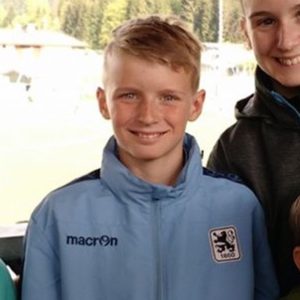
Grayson Dettoni, a young U12 center back, was selected to train at the youth academy of TSV 1860 Munich. When Dettoni’s father was able to move his company to Bavaria, the young American immediately capitalized on his chance to showcase his talents in Munich in order to become a true German fußballer.
TSV 1860 Munich Background
 Although the dominance of Bayern Munich at the first division is evident, the youth competition between the Bundesliga champions and TSV 1860 Munich remains much closer.
Although the dominance of Bayern Munich at the first division is evident, the youth competition between the Bundesliga champions and TSV 1860 Munich remains much closer.
At the youth level, 1860 has thrived and continues to develop soccer talent that currently play in the first division of German soccer. Notable players include Julian Weigl, current starting midfielder for Borussia Dortmund, as well as U.S. Men’s National Team regulars Fabian Johnson and Bobby Woods. Johnson is now with Bundesliga and UEFA Champions‘ league club Borussia Mönchengladbach, while Woods joined Hamburg SV during the past offseason.

At the U11 level, Dettoni’s squad has been successful at defeating their cross-town rival – Bayern Munich – in a hard fought title game in Merkur Cup, the greater Southern Bavaria tournament. Dettoni’s club was also crowned champions of Cordial Cup, a european tournament that welcomed the academy teams of Ajax Amsterdam, Bayern Munich, Bayer 04 Leverkusen and Norwich City.
TSV 1860 and Bayern are viewed as “all-star” teams in Bavaria, as both clubs have full time youth scouts that evaluate talent in the greater Munich area. It is an honor to be selected to train at these youth soccer academies.
SoccerToday spoke with Erin Dettoni, Grayson’s mother, on her son’s passion for soccer and the big move to Germany.
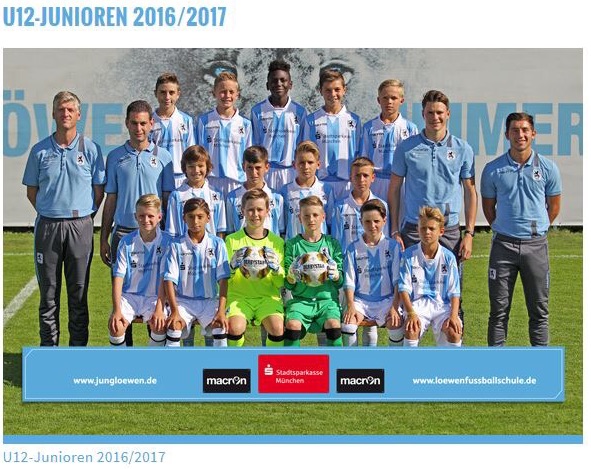 Diane Scavuzzo: Your family moved overseas because of your husband’s work — what role did your son’s soccer passion play in the decision?
Diane Scavuzzo: Your family moved overseas because of your husband’s work — what role did your son’s soccer passion play in the decision?
Erin Dettoni: We moved to Germany before he was offered a position on TSV 1860 Munich. In moving to Germany, we were excited to find the right fit for him to play at a high level and to gain incredible exposure to the intensity and coaching in German football.
Diane Scavuzzo: How old was your son when he first stared to play?
Erin Dettoni: Grayson started playing at age 4 in Virginia with the McLean Youth Soccer Club. After moving to Southern California, he began playing at Surf SC at age 7.
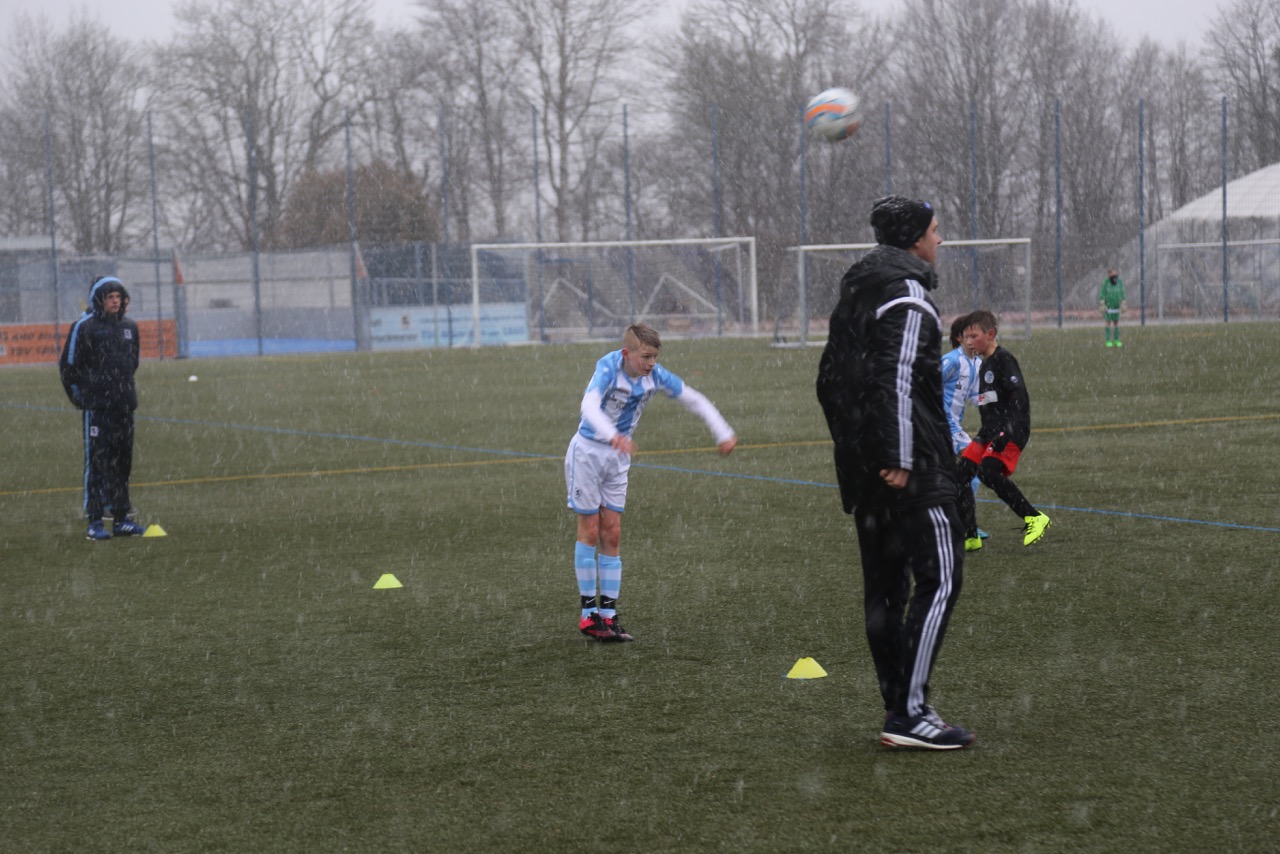
Diane Scavuzzo: What is the biggest difference between playing soccer on a youth soccer team in San Diego and being in Germany playing at 1860 Munich?
Erin Dettoni: Playing here in Europe, you are considered to be a professional athlete when you play at a top club.
The club has sponsors just like professional athletes. It’s much more competitive — the tournaments they play in can have thousands of spectators and they compete in soccer stadiums. The youth teams play against other European professional clubs such as Ajax, Barcelona, Real Madrid, Benfica, Arsenal, Manchester United, West Brom, Chelsea, Norwich, and all German Bundesliga 1 & 2 clubs.
The teams travel to soccer tournaments by train or on the team bus together. You have locker rooms and different sets of uniforms. All of this is very different than playing at an American club.
Playing in the USA, even at a very competitive club, felt like an afterthought — just something they did after school during the week for exercise and maybe on the weekends.
Playing in Germany, the youth players here learn, eat, sleep, live and dream together!
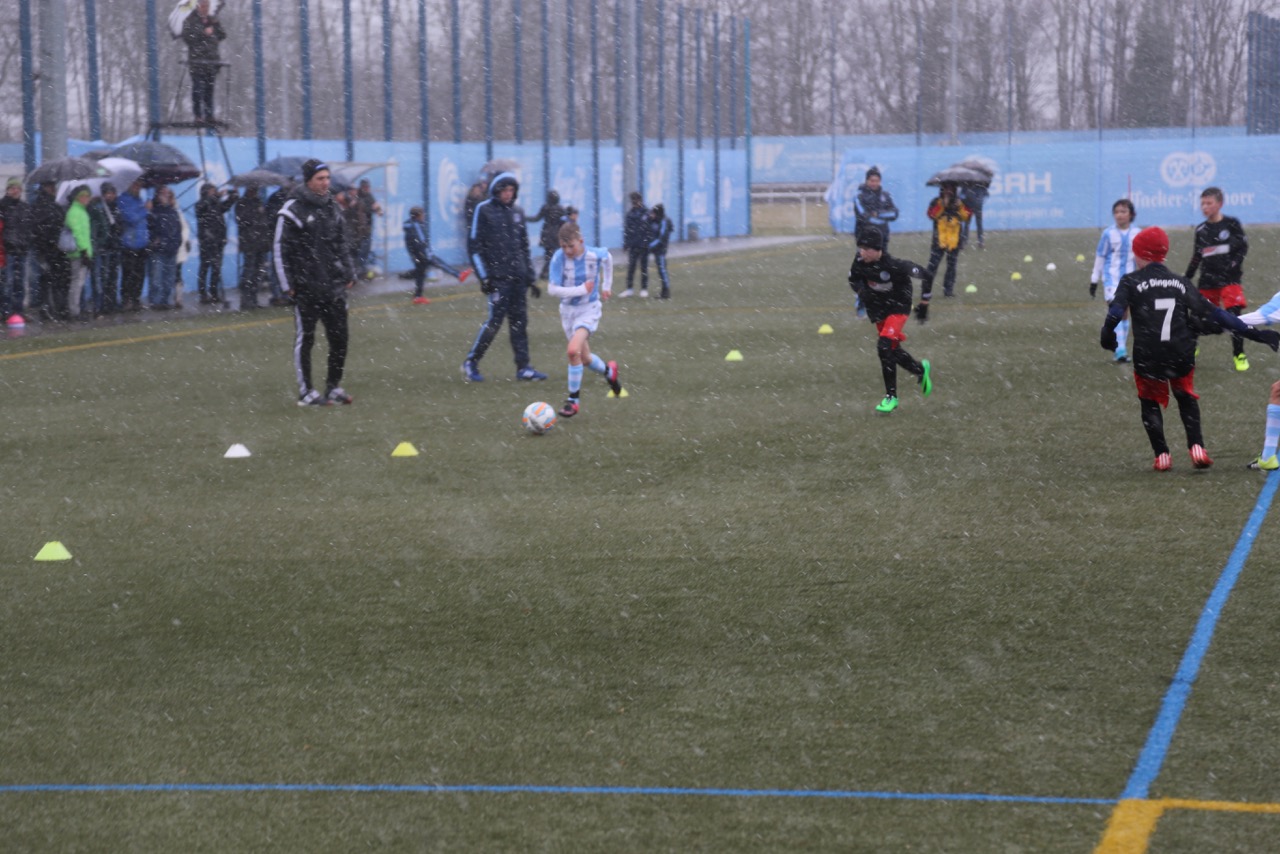
Diane Scavuzzo: Are the training practice schedules different? How many times a week does he practice now?
Erin Dettoni: The training schedule is not very different than at Surf SC.
But the boys must get to the training facility 30 minutes before training begins to meet in the locker room where they change and then the trainers give an overview of what that day’s training will consist of.
At 1860, they incorporate coordination training into the weekly training schedules as well. The training schedule is 3 times a week for 2 hours, and after training the boys shower together in the locker room and then they are free to leave.
There are always 1 or 2 games on the weekends or a 2-3 day tournament.
Diane Scavuzzo: What is Grayson’s goal?
Erin Dettoni: Grayson’s goal is to become a professional player in Europe and to be considered to play for the U.S National Team.
“I want to achieve the greatest I can — working hard and always do my best. My experience here in Germany is preparing me for my future,” says Grayson Dettoni.
Diane Scavuzzo: Was it hard to be on a team when everyone else spoke a different language?
Erin Dettoni: At the beginning it was really hard because no one understood Grayson and Grayson could not express himself.
The great thing about football is that it is a language. So even if a player can’t speak the country’s language, there is always a commonality on the pitch.
The trainers would only speak German — they could speak English but they wouldn’t because they wanted him to learn, so throughout the training it was difficult in the beginning.
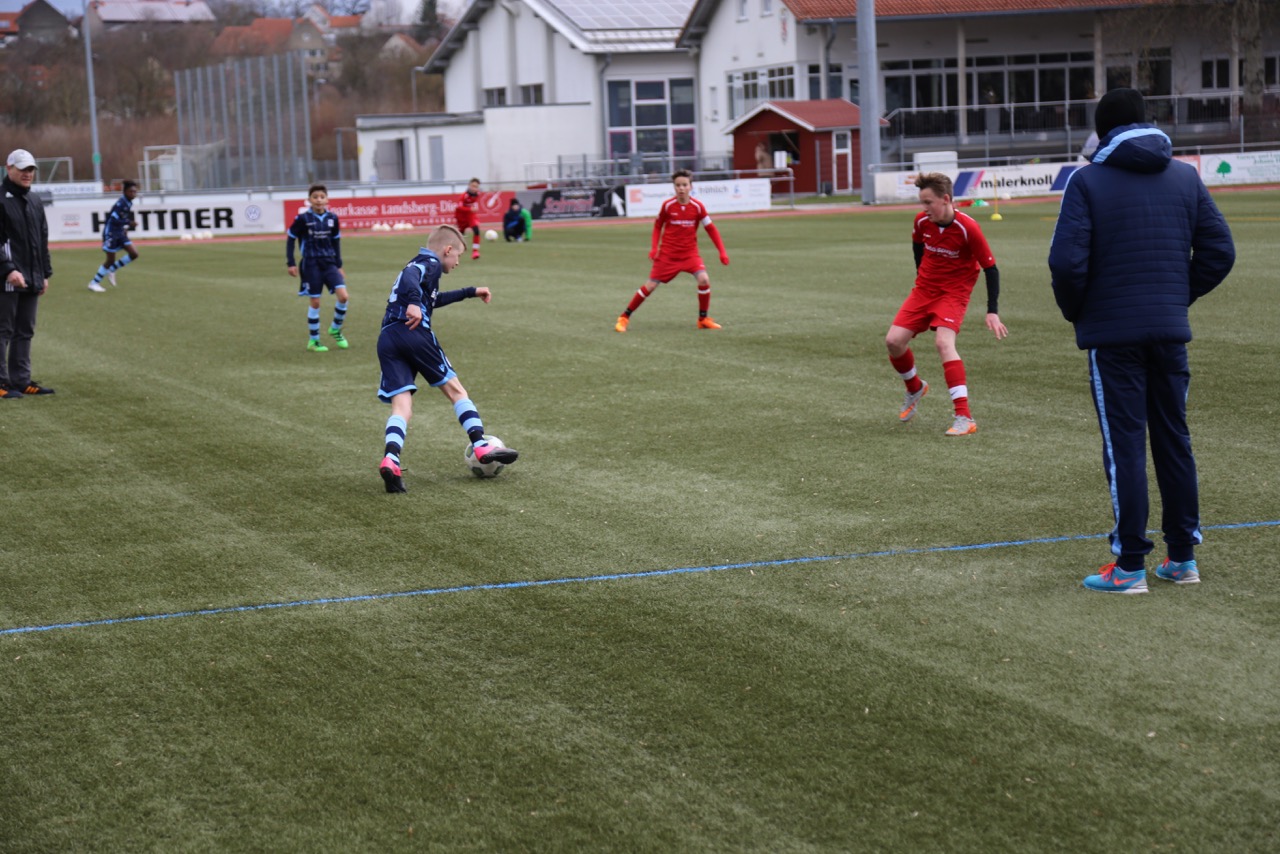
Diane Scavuzzo: How long did it take for him to become comfortable with the language?
Erin Dettoni: It took Grayson about a month to understand basic drills and to begin having some social conversations with the other boys and it took another 4 to 6 months to become comfortable speaking and understanding German.
Grayson attends a Bilingual school in Munich and has become fluent a year later. Most people don’t think he is American. His success in the German language is strictly due to football and we are so grateful.
Diane Scavuzzo: What is it like living in a country where soccer is part of the culture?
Erin Dettoni: Everyone plays football, everyone talks about football and everyone wears football jerseys.
Soccer is an up and coming sport in the USA and here people live and breath it — It is the foundation of the culture and society.
Diane Scavuzzo: Does Grayson believe the youth soccer training is better in Germany than in America?
Erin Dettoni: Hands down, it’s so much better. They push the players technically and they treat them as young professionals. 1860 Munich performs speed tests every month, the players have weight and heights checks regularly and there are medical checks with a team doctor. There is also a team physiotherapist.
The soccer drills are much more technical. At the 1860 training facility, they’re 5 football pitches and an indoor court to train for Halle season — the indoor season.
A huge difference too is that they train outside in the RAIN or SNOW, THUNDER or LIGHTENING. Nothing will stop a training session. There is absolutely no comparison.
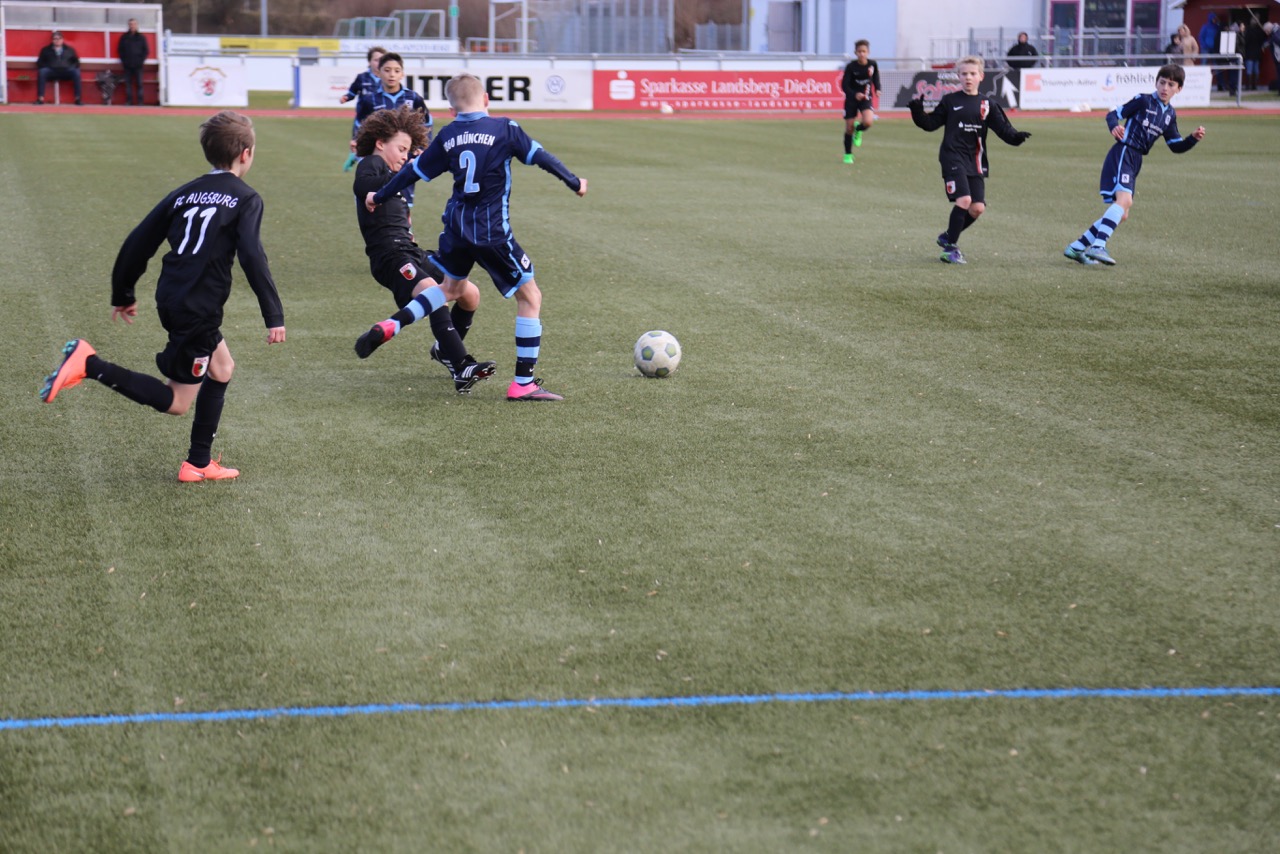
Diane Scavuzzo: What is hard to get on the 1860 Munich team?
Erin Dettoni: Yes, very hard. We came over to Munich in March 2015 and Grayson was able to do a 10-day trail with 1860 on the U10 team. He went to about 6 trainings, attended a couple of matches and after the trail ended they told us that he could come back at the very beginning of June — upon moving to Munich — and train with them for the whole month. He hadn’t “made the team” yet.
Grayson started training with the U10 team on the first Monday in June and the following weekend he was invited to a tournament in Frankfurt. So the very first weekend after arriving into Munich, Grayson was hopping on a train to Frankfurt with this team and playing in a huge tournament with all of the top teams around Germany. We drove up to Frankfurt and watched him play and he had a very successful weekend. After the tournament on Sunday evening, we met him back at the Munich train station and the coaches told us that they really wanted him for the team. A week or so later, we were signing a contract. The clubs here go to great lengths to find the best players and most of the time, it does not happen quickly.
 Diane Scavuzzo: Can you help our readers understand where 1860 Munich fits in compared to Bayern Munich?
Diane Scavuzzo: Can you help our readers understand where 1860 Munich fits in compared to Bayern Munich?
Erin Dettoni: TSV 1860 Munich was establish May 17, 1860 as a sporting club and a football department was created on 6 March, 1899. TSV 1860 Munich is one of the founding members of the German Bundesliga. Bayern Munich was founded in 1900 and was a junior club to 1860 until after World War Two as the creators of the Bundesliga were concerned with having two teams from the city of Munich in the league. Bayern played their way into the Bundesliga, joining the Bundesliga in 1965.
 Bayern Munich is one of the most successful and lucrative sporting franchises in the world, dominating European soccer and the top division of the German Bundesliga. 1860 Munich was relegated from the top tier of the Bundesliga in 2004 and plays in the second division of the Bundesliga.
Bayern Munich is one of the most successful and lucrative sporting franchises in the world, dominating European soccer and the top division of the German Bundesliga. 1860 Munich was relegated from the top tier of the Bundesliga in 2004 and plays in the second division of the Bundesliga.
The professional teams both play at Allianz Arena. TSV 1860 Munich and Bayern Munich fans are fierce rivals. The Bayern and 1860 training fields and offices are less than a mile apart in the same neighborhood in Munich.






